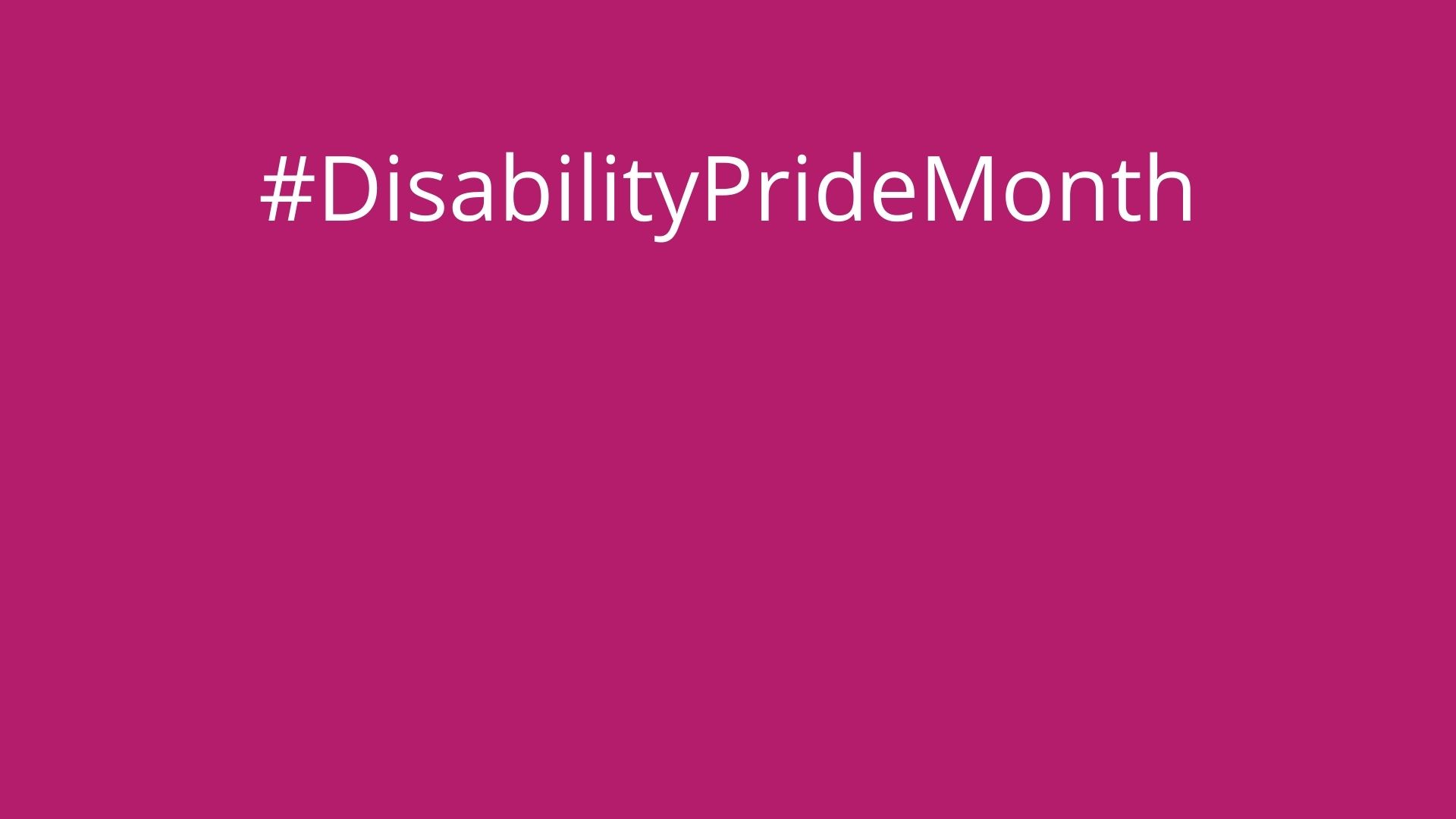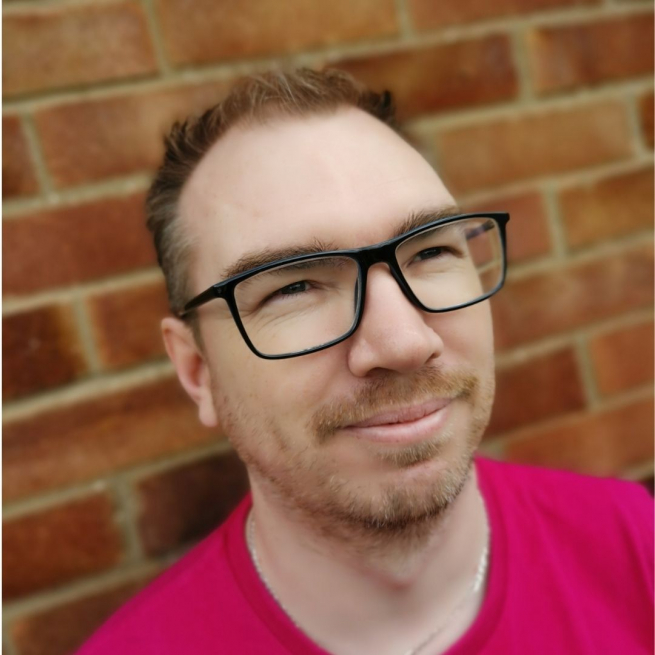
A guest blog post by Damian, from the Undressing Disability Team. Damian shares his personal experience of learning to accept and love himself as a disabled person and why he now celebrates Disability Pride Month.

When I was diagnosed with Ehlers Danlos Syndrome (EDS) at 14 years old, I found it hard to come to terms with. I wondered what it would mean for my life. It took me a very long time to “own” my disability and not be afraid or ashamed to show it.
I think it was hard when I was first diagnosed as I had to give up a lot of the things that I enjoyed doing, like running and playing football. There was nothing in the way of support or guidance back then. Looking back now, I think I was affected more than I realise by the fact that I did not get to finish my last year at school. The school decided it wasn’t safe for me to be on the premises after I slipped down a couple of stairs on my crutches. They had no interest in making things more accessible for me so I had to leave and was only allowed to sit a few of my exams. To be honest it was hard getting people to accept that I had a disability. Back then, hardly anyone had heard of Ehlers Danlos Syndrome so the fact I had to leave school and was seeing my friends less made it really hard. I missed out on a lot of the experiences teenagers usually get to enjoy.
“I tried to hide my disability”
Some people thought I was making my condition up as there was nothing to see. That’s possibly one of the main reasons I began to hide my disability as much as I could. I would only tell a small amount of people and that was usually if I absolutely needed to.
I wear support braces on most of my joints and always used to wear clothes that covered them up. If people could see my wrist brace, for example, I would just say that I’d sprained my wrist instead of explaining about my condition. I would only ever wear shorts on holiday as I did not like people seeing my knee braces. But I was still worried about what strangers would think about seeing me like that.
It took nearly 20 years for me to be more confident about myself and my disability.
Now I am very much of the thinking that if I have to wear braces and supports, I want people to see them. I quite often wear ones that stand out so it’s not unusual to see me wearing pink wrist supports. It makes me more confident about my disability and I guess it helps others to be more aware of me. Hopefully they can give me more space and not bump into me.
My brightly coloured accessories become quite a conversation starter at times and I am now happy to talk about my disability. It is something I will not hide ever again. It plays a big part in who I am. I wanted to write about this for Disability Pride Month as I know that whilst some people are posting on social media about all the things they are proud of, others will be lacking the confidence to do that. I hope in sharing this it helps in some way. To see what others are sharing search the hashtags #DisabilityPrideMonth or #DisabilityPride.
I now speak passionately about being disabled and I’m very proud of who I am. Part of my role here at Enhance The UK is to answer questions for the Love Lounge and by helping to run the Undressing Disability campaign. Joining the team at Enhance the UK has given me both confidence and a platform to talk about my disability and experiences in the hope of helping others realise they do not have to hide their disabilities.
Throughout the month of July we’re sharing posts on our Instagram Stories that relate to #DisabilityPrideMonth with the aim of bringing together the disabled community so we can celebrate, and learn from each other’s experiences. Follow us @UndressingDisability.
Stay Connected
Keep up to date with all our latest news, insights and resources by joining us on twitter @ETUKUndressing and Instagram @UndressingDisability.
The Love Lounge is a free service offering advice on questions relating to disability, sex, dating and relationships. Get in touch.
